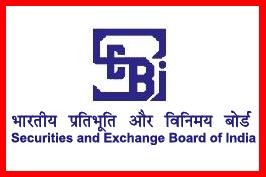Securities & Exchange Board of India (SEBI) – Economics Study Material & Notes
The security market in an economy is that segment of a financial market which raises Long-term Capital through instruments like shares, securities, bonds, mutual funds, debentures. This market is known as the security market of economy.
The security market in India comprises of a Security regulator (SEBI), stock exchanges, different share indices, brokers, FIIs,etc.
The security market has two complementary markets – Primary and secondary markets.
Primary Markets: It is a market where those instruments are traded directly between the entity raising capital and the instrument purchasing entity.
Secondary Markets: The market where those instruments of security market are traded among the primary instrument holders. These transactions require an institutionalized floor for trading, this platform is known as the stock exchanges.
The regulator of Indian stock market, is Securities and Exchange Board of India(SEBI). It is working since 1988 but was granted the statutory status in 1992 by the SEBI Act of 1992.
SEBI has its headquarters located in Mumbai with regional offices in Kolkata, Chennai, New Delhi and Ahmedabad.
Objectives of SEBI:
The Securities and Exchange Board of India has been established under the Section 3 of the SEBI Act of 1992. This act provides for the establishment of SEBI full with statutory powers for working towards the following :
(a) The protection of interests of the investors in securities market.
(b) The promotion for the development of the securities market.
(c) Work for the regulation of the securities market.
Composition of SEBI:
The Board of Securities & Exchange Board of India (SEBI) is comprised of 9 members, excluding the Chairman. It is managed by its members, in the following manner:
- A Chairman is nominated by the Union Government.
- 2 members of SEBI, are officers from the Union Ministry of Finance.
- 1 member of SEBI, is from the Reserve Bank of India.
- There are 3 whole-time members, who are nominated by the Government of India.
- There are 2 Part-time members, who are also nominated by the Government of India.
Presently, the Chairman of SEBI is U.K. Sinha.
<< Read about Heads of International organisations here >>
The Functions of SEBI:
The regulatory jurisdiction of SEBI extends over corporates(in the issuance of capital and transfer of securities), in addition to all the intermediaries and individuals associated with the securities market. SEBI performs the following functions to meet its objectives. These functions involve protective measures, Developmental activity and regulatory functions.
- Registering and stock exchanges, merchant banks, mutual funds, underwriers, registrars to the issues, Brokers, Sub-brokers, transfer agents,etc.
- Levying various fees and other charges(as 1% of the issue amount of every company issuing shares kept by it as a caution money in the concerned stock exchange where the company is enlisted).
- Promoting the knowledge in investor education.
- It conducts audit and Inspections of stock exchanges and their various intermediaries.
- It in involved in performing other concerned functions as may be prescribed to it from time to time.
- It Regulates the business in stock exchanges and other securities markets in the economy.It prohibits Insider Trading by keeping a check when insiders of a company buy securities of that company.
- It takes strict action against insider trading.An Insider is any individual who is connected with the company like its directors or promoters, etc. These ‘insiders’ possess sensitive information which has potential to affect the prices of the securities in the market. However, you would point out that such information is not available to common people, while the insiders can take advantage of this information to make profit. This is known as Insider Trading.
- It is involved in registering and regulating the working of players in stock exchanges like stock brokers, sub-brokers, market makers, etc.
- It Promotes as well as regulates the self-regulatory organizations also.
- SEBI prohibites the fraudulent and unfair trade practices in the securities market.
- SEBI is also interested in calling for information, undertaking inspections, conducting audits and inquiries of the stock exchanges, intermediaries, self – regulatory organizations, mutual funds and other persons associated with the securities market in the country.
- It keeps a check on Price-rigging by fraud investors. Price rigging is basically manipulation of the prices of securities for inflating or deflating the market price of securities. Such practices are harmful for the performance of market at large.
W hope this short compilation is helpful in understanding the role and functions of the Securities Exchange Board of India (SEBI). We have included this topic in our Economics study mateial & Notes section to help you relate the functions of SEBI with other regulators like RBI, IRDA and NABARD. You can read about them by following the links below. We keep updating and adding new material for quick revision regularly, you can support us by visting exampariksha regularly.
<< Read about Reserve Bank of India here >>




